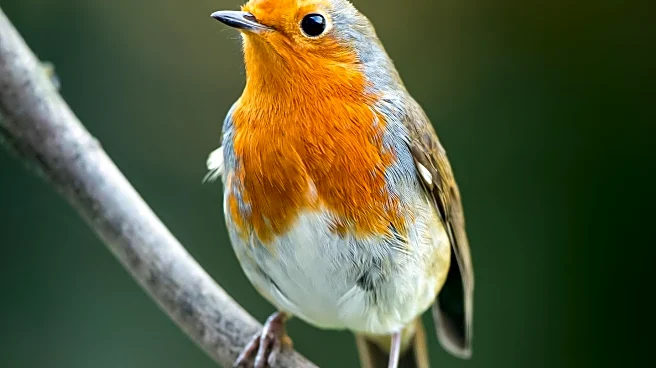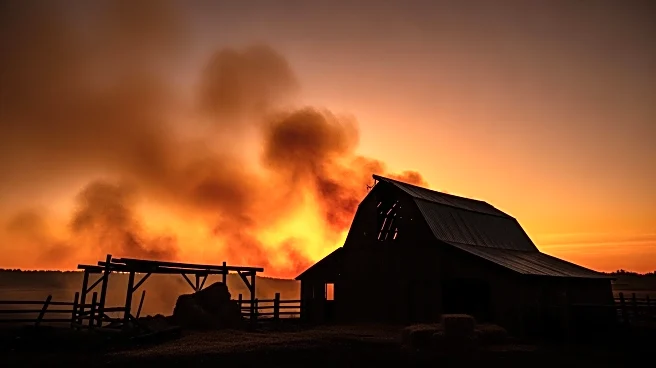What's Happening?
The RSPCA has called for a ban on the public sale of glue traps following the death of a robin at their East Winch Wildlife Centre in Norfolk. The bird was found alive but stuck to a glue trap after flying into a house. Despite efforts to save it, the robin succumbed to its injuries. Although the use of glue traps without a pest control license was banned in England last year, they remain available for purchase. The RSPCA has reported similar incidents involving pigeons and small mammals like hedgehogs. Evangelos Achilleos, the centre manager, described the robin's death as 'heart-breaking' and emphasized the traps' inhumane nature, urging retailers to stop selling them.
Why It's Important?
The continued availability of glue traps poses a significant threat to wildlife, as evidenced by the recent incidents reported by the RSPCA. These traps, while intended for pest control, often result in unintended harm to non-target species, causing unnecessary suffering. The RSPCA's call for a ban highlights the need for stricter regulations and increased awareness among retailers and consumers. If successful, such a ban could prevent further wildlife casualties and promote more humane pest control methods. The issue also underscores the broader challenge of balancing pest management with wildlife conservation.
What's Next?
The RSPCA's appeal may prompt further discussions among policymakers and environmental groups regarding the regulation of glue traps. Retailers might face increased pressure to voluntarily remove these products from their shelves. Additionally, there could be a push for public education campaigns to raise awareness about the impact of glue traps on wildlife and to promote alternative pest control solutions. The Department for Environment, Food and Rural Affairs may also be urged to review and potentially tighten existing regulations.
Beyond the Headlines
The debate over glue traps touches on ethical considerations in pest control, highlighting the need for humane practices that minimize suffering. This incident may lead to broader discussions about the ethical treatment of animals and the responsibilities of consumers and businesses in preventing harm to wildlife. Long-term, this could influence cultural attitudes towards wildlife conservation and the adoption of more sustainable and ethical pest management practices.








